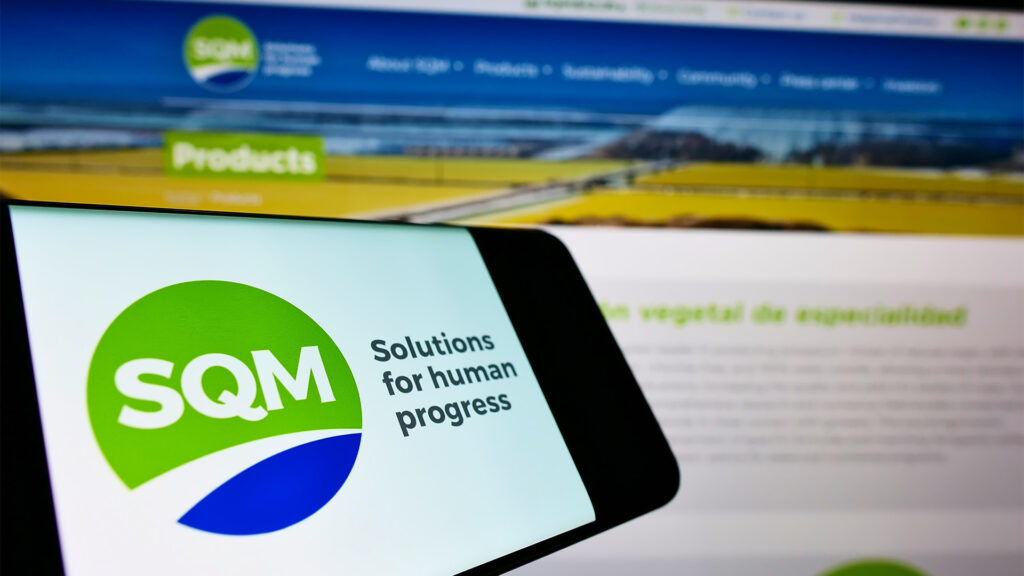While Chile’s SQM, the world’s second-biggest lithium player, has joined the list of companies in this key renewable metal to report a slump in sales revenues and weak to no earnings and losses for the three months to March 31, it is more upbeat about the rest of 2024 than the rotten results might suggest.
SQM is the last big company in the sector to report its March quarter performance and, like its peers such as Albemarle, Pilbara Minerals, IGO, and Arcadium, the slump in lithium prices and sluggish demand left big holes in the Chilean giant’s financials.
But the company sees a rise in lithium sales to around 200,000 tonnes this year – perhaps a gain of 15%, and strongish demand after an upturn in the first quarter which SQM sees continuing.
However, the March quarter saw another splodge of red ink after 2023’s slide. SQM said revenues for the three months to the end of March more than halved to $US1,084.5 million compared to $US2,263.9 million reported for the first three months of 2023.
That was despite a 30% plus jump in sales volumes in the quarter to more than 43,000 tonnes.
But that improvement wasn’t enough to offset the huge slide in lithium prices – especially for carbonate, which SQM produces from the brines of Chile (as does Albemarle), while hydroxide prices also took a battering.
So the company reported a net loss for the quarter of nearly $US870 million, a huge turnaround from the $US750 million profit reported for the first three months of last year.
Gross profit fell to $US368.5 million or 34% of the reduced revenues from $US1,065.6 million or 47% of revenues in the March 2023 quarter.
SQM said it completed the acquisition of the Andover lithium project in WA in the quarter. Gina Rinehart’s Hancock Prospecting group bought Azure Minerals, which controls 60% of Andover.
That deal was the only mention of SQM’s extensive operations in Australia. Nothing was said in the earnings release about the Covalent Lithium JV with Wesfarmers, which includes the Mount Holland spodumene mine associated hydroxide refinery under construction at Kwinana, south of Perth.
The company also said that it completed the ramp-up of the 20,000 tonnes a year Dixin lithium hydroxide conversion facility in Sichuan, China – that was converted to produce hydroxide from lithium sulfate SQM produces in Chile and is key to helping double the company’s hydroxide production from lithium sulfate.
SQM’s CEO, Ricardo Ramos, said in the statement released late Wednesday night in Chile, “lithium sales volumes were over 30% higher during the first quarter of 2024 compared to the same period last year.”
“This growth was offset by lower year-on-year realized average sales prices in these business lines as a result of lower market prices during the first quarter of 2024.”
Despite the halving in revenue and loss for the quarter, the company thinks this year will see better times.
“We believe that the strong demand growth in the lithium market seen since the beginning of the year could continue for the remainder of the year, with total lithium demand surpassing 1.1 million metric tons during 2024.”
“Given this positive trend in demand growth, especially in China which accounts for almost 75% of global lithium demand, and our updated sales volumes outlook for the year, we believe that our sales volumes could reach 200,000 metric tons in 2024.”
Seeing SQM produced sold just over 170,000 tonnes of lithium in 2023 and at the start of this year forecast a rise of 5% to 15% in sales for 2024, the 200,000 tonne estimate is a slight upgrade.

